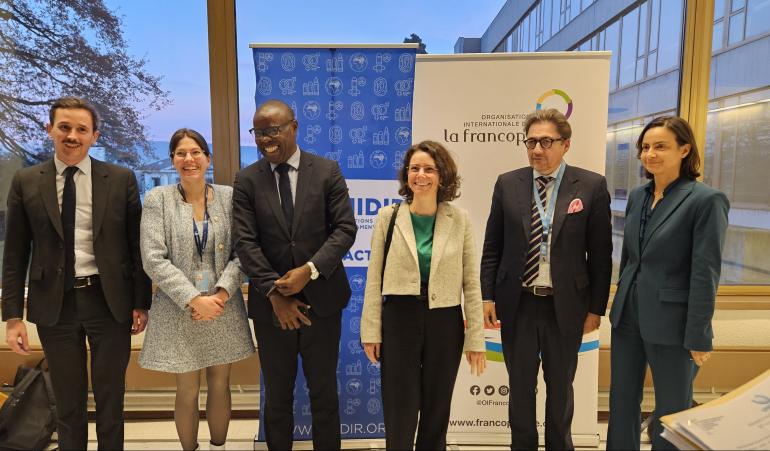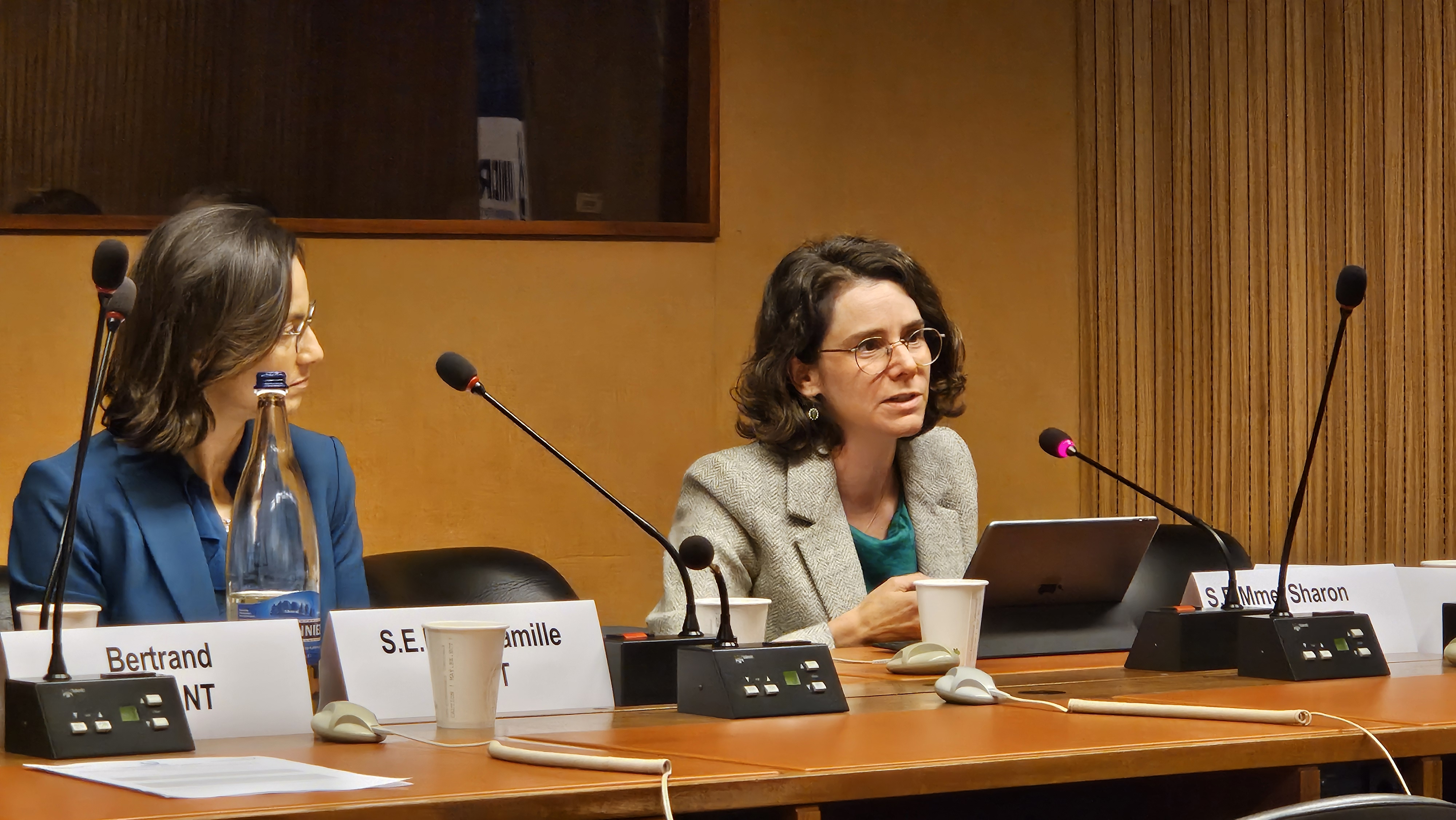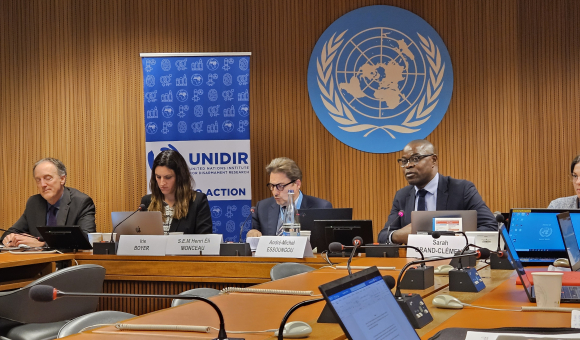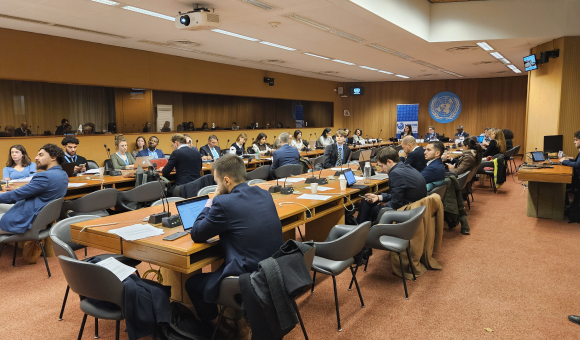
On Wednesday 27 November, the Delegate General of Wallonia-Brussels in Geneva, Sharon Weinblum, took part in the Disinformation, peace and security workshop organised by the United Nations Institute for Disarmament Research (UNIDIR) and the Organisation internationale de la Francophonie (OIF). In the face of information disorder which polarizes our societies and fuels cynicism, mistrust, and civic disengagement, this workshop highlighted the ongoing efforts of numerous players striving to rebuild a healthier and more trustworthy information ecosystem.
The speakers took turns to present various topics:
- The impact of disinformation on democracy (Iris Boyer, Head of the Observatory on Information and Democracy)
- The implication of disinformation in conflict mediation (Maude Morrison, Deputy Director, Digital Conflicts, Centre for Humanitarian Dialogue)
- The impact of misinformation on UN peacekeeping operations (Mr André-Michel Essoungou, Political Affairs Officer, Information Integrity Service, Department of Peacekeeping Operations)
- Disarmament and arms control (Ms Sarah Grand-Clément, Researcher, UNIDIR)
- Disinformation in the field of human rights (Mr Scott Campbell, Human Rights Officer, Office of the United Nations High Commissioner for Human Rights (OHCHR))
Key initiatives in French-speaking Belgium
Sharon Weinblum highlighted several actions and initiatives in place in Belgium, particularly in the French-speaking region, to combat misinformation:
- Support for independent, high-quality media that are continuously updated to adapt to the way younger generations consume information.
- Awareness-raising campaigns during elections and programmes to develop young people's critical thinking skills regarding media content, in particular through the creation of the Conseil supérieur de l’éducation aux médias (Higher Council for Media Education).
- Initiatives to detect fake news, such as the European research consortium launched by a UMons researcher with the project AI4Debunk, or the Belgian-Luxembourg initiative Dinsinfocheck (Edmo Belux) involving the RTBF (Belgian Radio-television of the French Community).
- European frameworks, including the Digital Service Act, which imposes various regulations on digital platforms and social networks, or the Artificial Intelligence Act, which makes it compulsory to indicate when content has been manipulated or generated by AI.
Bertrand Levant, Head of the Information Integrity Unit at the Organisation internationale de la Francophonie (OIF), also highlighted the various initiatives taken by French-speaking regions, followed by Ambassador Camille Petit, Permanent Representative of France to the Conference on Disarmament.
Disinformation is an interdisciplinary challenge that requires a multifaceted international approach. Establishing a consensus on the definition of disinformation is crucial to improving the effectiveness of countermeasures, particularly given its rapid evolution. Transparency must also be a central focus in order to rebuild trust in journalistic sources. With approximately 80 participants, it is clear that this issue is a shared concern throughout the French-speaking world.


